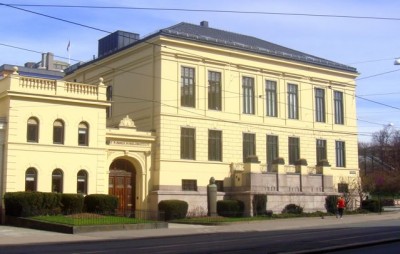Members of the Norwegian Nobel Committee have started huddling at the Nobel Institute in Oslo once again, to deliberate over who will win the Nobel Peace Prize this year. The number of nominations for this year’s Nobel Peace Prize has declined slightly for the first time in several years.

Among the nominees are, as usual, several controversial candidates including US soldier Bradley Manning, who’s currently in a military prison and charged with leaking secret American documents to website WikiLeaks.
Norwegian Broadcasting (NRK) reported that Manning was nominated by three members of parliament in Iceland. They believe he deserves the Nobel Peace Prize because release of the documents revealed new information about civilian casualties in Iraq and Afghanistan. The documents also shook up international diplomacy, because they included so-called “embassy cables” that revealed US officials’ private and often unflattering comments and evaluations of other countries and their leaders.
NRK reported that WikiLeaks itself was not nominated this year, like it was last year. Other nominees, though, include former US President Bill Clinton, several leading pro-democracy activists in Russia and Belarus, former German Chancellor Helmut Kohl and the European Union (EU).

A total of 231 nominations had been received by the February 1 deadline, confirmed the Norwegian Nobel Committee that’s charged with sorting through them all and choosing a winner that’s traditionally announced in early October. The prize itself is always awarded on December 10, the anniversary of prize benefactor Alfred Nobel’s death.
Of the 231 nominations received, 188 are individuals and 43 are organizations, according to the committee. The number is down from a record 247 nominations last year but the long-time secretary of the committee, Geir Lundestad, was, as usual, ready with a positive spin, telling NRK that in his view, “more and more” nominations have kept coming in over the years.
He said this year’s nominations are a mix of both familiar and unfamiliar names, some of them nominated for the first time and others perennial candidates. That’s about all Lundestad or other Nobel officials are allowed to say, because neither specific nominations nor the substance of the committee’s investigations and evaluations regarding the awarding of the prize can be divulged under Nobel rules. Committee deliberations can’t be made public for at least 50 years after an award is decided upon.
Those making the actual nominations, however, are free to announce them and explain why they were nominated. Nominations may be made by members of national assemblies and governments, members of international courts, university deans and professors of social sciences, history, philosophy, law or theology and directors of peace research and foreign policy institutes. Former prize winners can also make nominations, along with board members of organizations that have won the prize, active and former members of the Norwegian Nobel Committee and former committee advisers.
Meetings underway
The Norwegian Nobel Committee met for the first time last week to start going through this year’s nominations. At least 200 of the nominations are generally eliminated quickly, with the committee then dealing with a so-called “short list” said to typically contain from five to 20 candidates.
Those on the short list will be then be given “more thorough consideration” by the Nobel Institute’s permanent advisers who include the institute’s research director and what the committee describes as “a small group of Norwegian university professors with broad expertise in the subject areas with a bearing on the Peace Prize.” They’re given a few months to draw up their reports, while reports also are “occasionally requested” from other Norwegian and foreign experts.
The five-member committee appointed by the Norwegian Parliament generally decides on a winner by mid-September. Debate has run high in recent years over how the prize is awarded and whether it adheres to the terms of Alfred Nobel’s will. The Norwegian committee insists it does.
The committee is currently headed by former Norwegian Prime Minister and Labour Party leader Thorbjørn Jagland, now secretary general of the Council of Europe, and also includes Kaci Kullmann Five, a former government minister and former leader of Norway’s Conservative Party; Inger-Marie Ytterhorn, a former Member of Parliament for the conservative Progress Party; Berit Reiss Andersen, a well-known lawyer in Norway and president of the Norwegian Bar Association; and Gunnar Stålsett, a former bishop of Oslo and former leader of the Center Party. Stålsett is serving in place of Ågot Valle, who is on sick leave.
Views and News from Norway/Nina Berglund
Please support our stories by clicking on the “Donate” button now:

